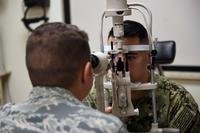The following post was provided by the Military Officers Association of America: MOAA Concerned About Large Proposed TRICARE Fee Hikes The president released a FY 2017 budget request on Tuesday that includes $48.8 billion for the DoD Military Health System but would shift more of the cost burden to military beneficiaries. MOAA’s president, retired Air Force Lt. Gen. Dana Atkins, described the TRICARE-reform plan laid out in the defense budget as including limited quantifiable benefit fixes mixed with numerous beneficiary fee hikes. “We were hoping to see some specific proposals to address well-documented problems with access, continuity of care, referrals, National Guard and Reserve programs and other documented health care issues, but so far, we’re left asking, ‘Where’s the substance?’ ” said Atkins. He expressed concern that the proposed budget envisions a broad array of fee hikes, mostly affecting retired servicemembers and their families and survivors. “We’ve been heartened by our discussions with leaders and staff members of the House and Senate that they’re focused on improving the health care benefit and the reform focus isn’t just about raising fees for beneficiaries,” Atkins said. “But the budget proposal seems to be mostly about the fees, with only a few sentences on possible program improvements.” On the plus side, MOAA expressed support for the proposal to reduce the retiree cost-share for in-patient care, as well as initiatives to change copays to flat fees rather than a percentage of the bill. “However, a number of proposals concern us,” Atkins cautioned. “Our initial assessment is that the full array of fee changes would mean about a $500 to $600 annual increase for retired families under 65 who use in-network providers and an increase of more than $1,000 a year for those using out-of-network providers. One obvious concern is how robust the network will be. One of the main access problems is that many doctors don’t want to be in the current network. We’d like some assurance that will be fixed.” Atkins also cited MOAA’s concerns about proposals to:
- impose a new enrollment fee for beneficiaries now using TRICARE Standard and TRICARE For Life (which covers beneficiaries age 65 and older). MOAA believes enrollment fees should be reserved for programs like TRICARE Prime that provide guaranteed access standards, which the other programs do not;
- establish a new $600 family deductible for out-of-network care;
- means-test fees for TRICARE For Life beneficiaries, which MOAA calls unprecedented and inappropriate for service-earned health coverage, as it imposes escalating financial penalties for longer and more successful service on a population that already is paying the highest fees of any military beneficiaries;
- establish a multiyear schedule to double most pharmacy copays, which MOAA says already have been doubled or tripled in the past five years; and
- adjust fees with a medical inflation index that is projected to grow at more than 6 percent per year. MOAA says fees should be indexed to the same inflation measure used to increase military retired pay, as Congress already has done.




